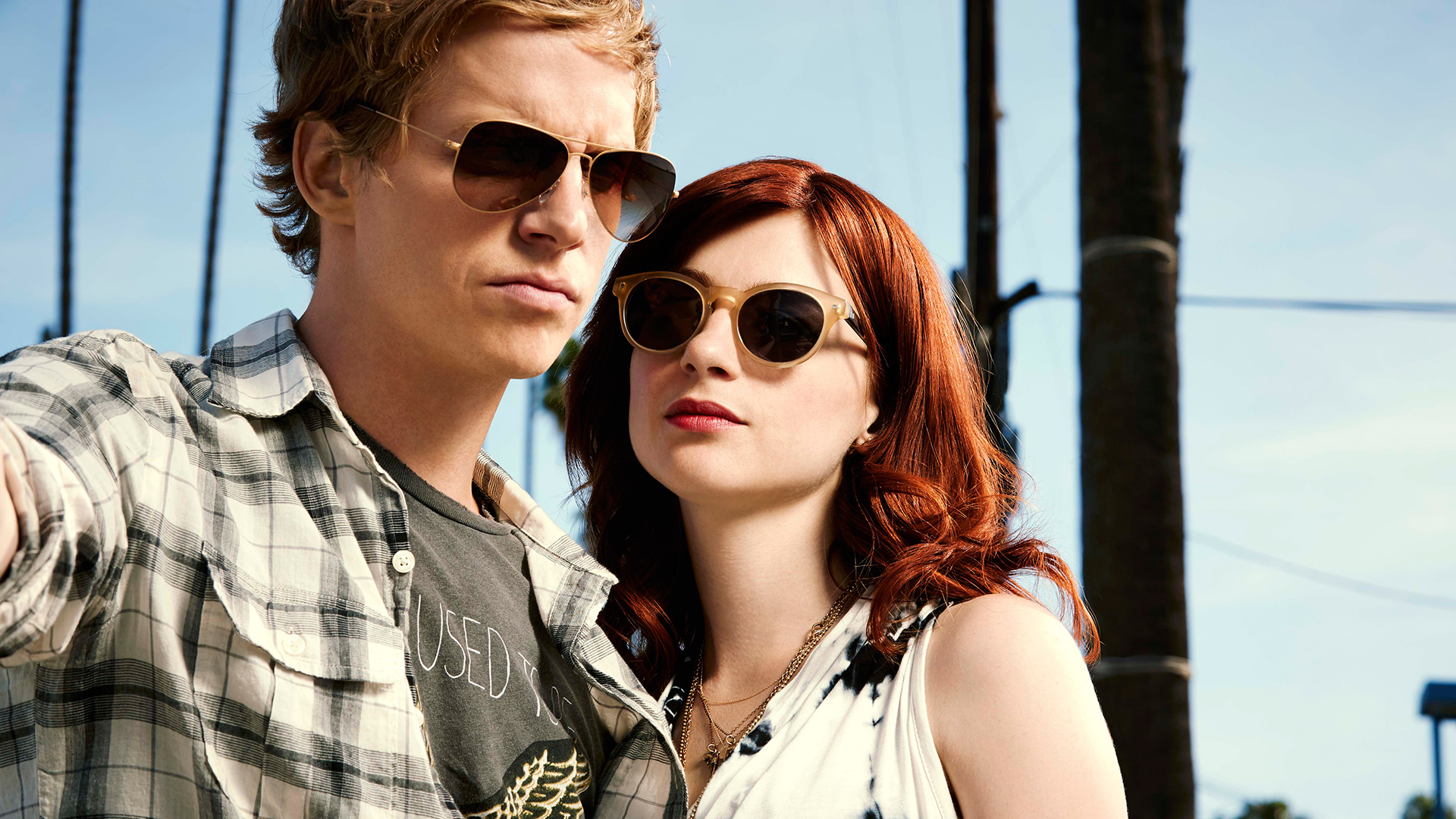(In case you missed it, my fiancee Reba and covered the entirety of You’re the Worst’s first season in our Podcast, Firsties! You can find that on the website, on Sound Cloud, on iTunes and other podcast apps under “Medium Mashup Podcasts,” and coming soon on Google Play Music’s podcast channel!)
One of the few complaints I had about You’re the Worst’s hilarious and assured debut season was its tendency to stall regarding Jimmy and Gretchen’s relationship. By its midpoint, we had already seen several episodes that hammered home the same point: Jimmy and Gretchen made sense in a relationship and improved each other’s lives, but were consciously afraid of such things. Both characters had reasons to keep their distance, with Jimmy’s denial of love as a concept and Gretchen’s fear of commitment and maturity, but there was only so much there to sustain a full season of television.
Fortunately, the start of the show’s second season largely does away with this particular conflict. Jimmy and Gretchen find themselves on solid ground from the start, and much of the conflict shifts to Lindsay’s divorce and Edgar’s interest in her. This period of the season does an excellent job of expanding on both characters, defining Edgar in ways completely independent from his PTSD, and showing just how far Lindsay can fall when desperate. Just like its first season, this section of season two succeeds by balancing very funny (and often crude) jokes with an actual care and interest in its characters.
But the real achievement of You’re the Worst’s second season is its much riskier second half. We learn that Gretchen has suffered from clinical depression for most of her adult life, and see firsthand how such an affliction can harm both the sufferer and everybody around them. The show portrays depression in a much smarter and more nuanced way than many of its contemporaries; as Gretchen says, it’s not so much an ever-present feeling of sadness as it is a lack of any emotional feeling whatsoever. She describes it as feeling “scooped-out,” and her complete lack of motivation to engage with anyone or anything is quite a challenge to portray in any sort of storytelling, where character action is paramount.
A lot of attention is placed on Jimmy and how he deals with Gretchen’s depression. His first inclination is to “fix” her, something she immediately cautions him against. While I cannot state first-hand what it is like to suffer from clinical depression, this all feels like it is pulled from real-life experience. It’s easy to see why Jimmy’s insistence to help would be so frustrating: it’s impossible to be angry at somebody for caring, but their need to repair your problems just points out that you’re broken to begin with, and likely in a way that will never completely subside. Meanwhile, it’s easy to sympathize with Jimmy, who openly cares about Gretchen’s well-being but is unable to connect with her and pushed to end their relationship.
The effects of depression on relationships isn’t the only aspect of the disease that the show takes on. Gretchen’s use of cocaine to self-medicate tackles another element of mental illness that is often brushed aside: the desire to feel something, anything, by any means necessary. The same could be said about the revelation that Gretchen does not take actual medication for her depression; the same fear of emptiness that could lead somebody to self-medicate can lead to the avoidance of medication when it could dull the senses.
This whole arc is strongly written and groundbreaking, but to talk any further about it would perhaps give you the wrong idea of the show. You’re the Worst is still a comedy in its second season, mining humor from Gretchen’s condition (a particular mention of all the other “great artists” who suffered from depression is darkly hilarious) and continuing to get laughs in its subplots. Edgar continues to expand as a character through his relationship with his improv-comedian girlfriend, Lindsay’s foibles and tiny victories are very funny, and a host of season-one callbacks help ground the show.
It’s good to see Sunday Funday make another appearance, and ending the season on yet another Becca and Vernon party lends the two seasons a nice symmetry. In both cases, the story utilizes the familiar scenario or device in a new and interesting way: Sunday Funday becomes a Halloween episode focused on fixing Gretchen’s depression through activities, and the party keeps a lot of its staples (a character getting horribly drunk on “trash juice,” somebody interrupting a big announcement, etc.) while re-purposing them to fit the current storylines and the new status-quo.
This balance is what really makes You’re the Worst’s second season such a stand out. It is fully aware of the first season’s strengths and continues to use them, but isn’t afraid to branch out and take risks either. It’s a brave approach that led to a terrific sophomore season of television.
